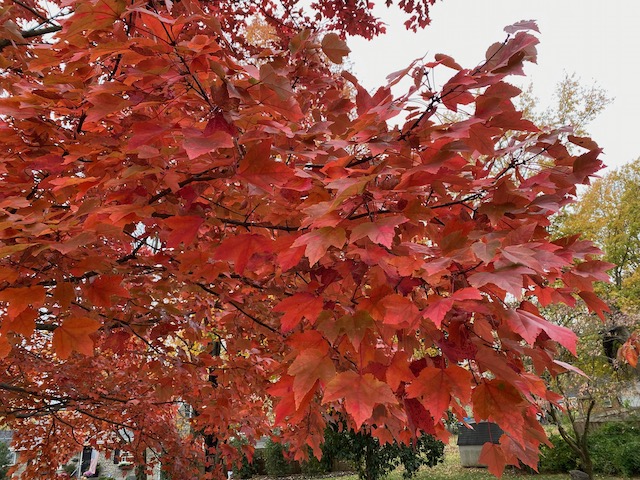I’m learning that there’s an important discernment to be made about when it’s time to claim something and when it’s time to let it go. Another pair for Ecclesiastes. We do what we can to make things work, to play our part, to live well and care for others, but the outcome is out of our hands. This is true in love and work, art and politics, small projects and major endeavors.
Life teaches us about differentiating between what is and is not our work to do; it accomplishes this by placing people and circumstances firmly outside our control. We can do harm to ourselves and others when we go flinging ourselves against what is. While the deepest desire of our heart can be a guiding star for our lives, our more casual or conditioned wants are a burden. Many of our ideas about how things ought to be bring more pain than guidance. There’s a difference to discern between acting on our preferences and the right action to take.
Our habits of attention and patterns of emotion narrow our vision and cause us to focus on what distresses us. These habits create thorns that we believe indicate that something is terribly wrong and must be addressed. Our automatic way of moving through the world creates urgent problems to solve, and we believe that if we have agency at all we must solve them. We can’t see or feel anything else until that thorn is removed.
What we don’t realize is that we choose to prick ourselves with those thorns. The pain we put ourselves through is neither necessary nor helpful. We have the power to place our attention somewhere else, and to live differently.
Letting go is the practice that allows us to find out what is essential and what we’ve manufactured through our habits and conditioning. We develop our preferences and expectations over a lifetime, but when we make them a requirement for happiness these inclinations become a prison.
Letting go of who we think other people should be, and what we think should happen, is a lifetime learning project. And life helps us with it, showing us over and over again that people will be who they are and things will happen as they happen.
Our agency doesn’t extend to controlling people or events, yet we do have agency. Acting not from our habitual patterns but from our essential being—the higher, wiser Self who can see clearly what’s needed—is how we can act most effectively for good. Acting from this conscious awareness, rather than being driven by unconscious emotions, is the way to be accurately perceptive, genuinely strong, and truly loving.
We might never choose to do the deep work of this kind of discernment, except that life brings experiences of disappointment, pain, and failure that demand a reexamination of what we thought we knew. Over and over again, life invites us to loosen our grip on who we believe we are and what we believe matters. As we accept this invitation, the world grows larger than the parameters of our preferences. We realize that we don’t always know what’s best for us, and learn to hold less tightly to what we thought we wanted. And in the process, we come to see ourselves as part of a mystery more vast and beautiful than our smaller self could have ever imagined.
Susan Christerson Brown

